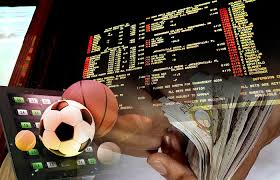
How to Manage Your Bankroll
Managing your bankroll is a crucial aspect of being a successful gambler, whether you play poker, bet on sports, or enjoy casino games. Understanding how to properly allocate your funds can make the difference between a rewarding experience and a frustrating one. One of the first steps in managing your bankroll effectively is to set a budget. Identify how much money you can afford to lose without affecting your daily life. This is your bankroll. For those interested in mobile betting, be sure to check out the How to Manage Your Bankroll at Online Casinos betwinner app download for convenient access to betting options on the go.
Set a Budget
The first step to managing your bankroll is determining how much you can afford to spend. This is your bankroll and should be treated as money set aside for entertainment rather than an investment. Avoid using money needed for bills or essential expenses. Once you have your bankroll allocated, stick to it. It’s easy to get caught up in the excitement and spend more than you planned, but discipline is key to long-term success.
Determine Your Bet Sizes
Once you have your bankroll, establish the size of your bets. A commonly recommended guideline is to wager no more than 1-5% of your bankroll on a single bet. If you have a bankroll of $1,000, for example, you should aim to place bets between $10 and $50. This approach minimizes the risk of going broke due to a streak of losses. Adjust your bet size according to your confidence in the bet and the type of gambling you’re involved in.
Track Your Betting History
Keeping a record of your bets is essential for successful bankroll management. Document each bet, including the amount wagered, the odds, and the outcome (win or loss). This tracking will help you identify patterns in your betting behavior, allowing you to see which strategies work and which do not. You can also measure your overall performance, which is vital for adjusting your future betting strategies.
Use Bankroll Management Strategies

Employing specific bankroll management strategies can help you maintain control over your gambling funds. One popular method is the “percentage betting” system, where you adjust your bet sizes according to your current bankroll. For instance, if your bankroll increases, so do your bet sizes, and vice versa during a losing streak. Another strategy is the “flat betting” approach, where you wager a fixed amount regardless of your wins or losses, providing a consistent betting experience.
Know When to Walk Away
A crucial aspect of bankroll management is knowing when to quit. Set winning and losing limits for each betting session. For example, if you’ve reached a predetermined loss limit, it’s time to walk away, regardless of how tempting it may be to continue. On the flip side, if you hit your winning goal, consider cashing out and celebrating your success. This discipline helps prevent the emotional rollercoaster of chasing losses, which can lead to bigger problems.
Emotional Control and Discipline
Gambling can evoke strong emotions, and managing those emotions is key to maintaining a healthy bankroll. Stay focused on your established strategies and avoid making impulsive decisions based on excitement or frustration. It’s vital to remain emotionally detached from your gambling activities, viewing it as entertainment rather than a source of income. This mindset will help you stick to your bankroll management plan and prevent emotional betting decisions.
Adjust Your Strategies as Needed
Your initial strategies and limits may need adjustment as you gain experience and learn more about your betting habits. Monitor your results and be willing to adapt. If you notice that your bankroll is consistently declining, consider implementing stricter limits or adjusting your betting strategy. Similarly, if you find continued success, you may want to gradually increase your bankroll or explore new betting opportunities, while still adhering to responsible gambling principles.
Educate Yourself Continuously
Lastly, continuously educating yourself about the games or sports you are betting on is essential. Staying informed about strategies, odds, and industry trends will help you make better betting decisions. Consider reading books, watching tutorials, or following expert analyses. Knowledge is a powerful tool in bankroll management, helping you identify value bets and maximize your chances of success.
Conclusion
Managing your bankroll effectively is a fundamental skill every gambler must develop. By setting a budget, determining bet sizes, tracking your betting history, and employing sound strategies, you can enhance your gambling experience while minimizing the potential for financial difficulties. Remember always to exercise discipline and emotional control, know when to walk away, and continuously educate yourself. With these strategies in place, you can develop a robust gambling habit that is both enjoyable and financially responsible.
AUG

About the Author